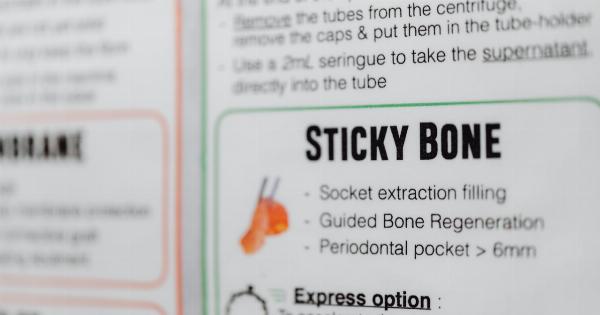Male hyposexuality, also known as low libido or sexual desire disorder, refers to the lack of sexual interest or desire in men. It is a condition that affects millions of men worldwide, leaving them feeling frustrated, inadequate and even depressed.
While low libido can affect men of all ages, it is most common in middle-aged and older men.
Low sex drive in men can be caused by a range of biological, psychological and social factors. It can be the result of underlying medical conditions such as hypogonadism, thyroid disorders, diabetes, depression, and hypertension.
Besides, psychological factors such as stress, anxiety, and past sexual trauma can also contribute to low libido.
Recent studies have suggested that low libido in men could be a predictor of untimely death. According to research findings, low sexual desire in a man is associated with higher rates of morbidity and mortality, which is a cause of concern.
This article explores male hyposexuality and its association with untimely demise.
How Sexual Dysfunction in Men can Cause Untimely Demise
Male hyposexuality, in most cases, is not directly responsible for untimely death. However, it can contribute to poor health, which can eventually lead to an untimely demise.
Studies have linked sexual dysfunction in men with high levels of stress, depression and anxiety, which can have a significant impact on one’s overall health.
Men who experience sexual dysfunction are more likely to smoke, consume alcohol excessively, practice unsafe sex, and lead a sedentary lifestyle. These behaviours increase the risk of obesity, diabetes, heart disease, and even cancer, all of which can lead to an untimely death.
In addition, sexual dysfunction can contribute to psychological problems such as low self-esteem, anxiety, and depression. These conditions can further affect an individual’s overall health and quality of life, increasing the risk of early death.
The Psychological Impact of Male Hyposexuality
Male hyposexuality can be a source of frustration, low self-esteem, and embarrassment for many men. The inability to perform sexually can lead to feelings of inadequacy and even depression.
Research has linked depression in men with low sexual desire, with an increased risk of suicide, especially in middle-aged men.
Furthermore, sexual dysfunction can cause relationship problems and lead to marital discord.
The stigma associated with male hyposexuality can impact one’s social life, leading to social isolation and loneliness, which can further contribute to depression and ultimately to premature death.
The Importance of Early Diagnosis and Treatment
Medical professionals recommend early diagnosis and treatment of male hyposexuality to prevent associated health problems and reduce the risk of premature death.
Diagnosis involves a thorough medical evaluation to rule out underlying medical conditions that could be the cause of low libido.
Treatment plans for male hyposexuality depend on the underlying cause of the condition. If it’s due to a medical condition or certain medications, treating the underlying condition or discontinuing the medication can help restore sexual desire.
In other cases, sexual therapy, lifestyle changes, and exercise can be beneficial for men with low libido.
For men with low libido caused by depression or anxiety, counselling, and psychiatric treatment may be necessary.
Early diagnosis and treatment of the underlying causes of male hyposexuality can improve the overall quality of life and reduce the risk of premature death.
Conclusion: The Link between Male Hyposexuality and Untimely Demise
Male hyposexuality is a prevalent condition that affects millions of men worldwide. While it is generally not directly responsible for untimely death, it can contribute to poor health and cause associated health problems such as depression and anxiety.
Untreated male hyposexuality can increase the risk of premature death by contributing to poor health, unhealthy behaviours and even suicide.
It is essential to seek medical advice early if you experience low sexual desire, especially if it is accompanied by other symptoms such as depression or anxiety.
Early diagnosis and treatment of male hyposexuality can improve the overall quality of life, prevent associated health problems, and ultimately, reduce the risk of untimely demise.































